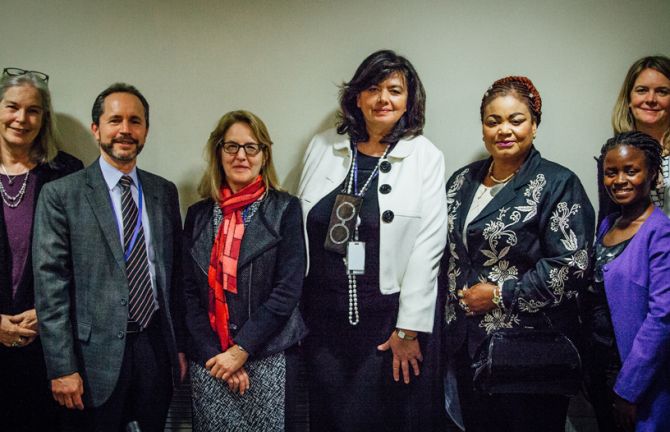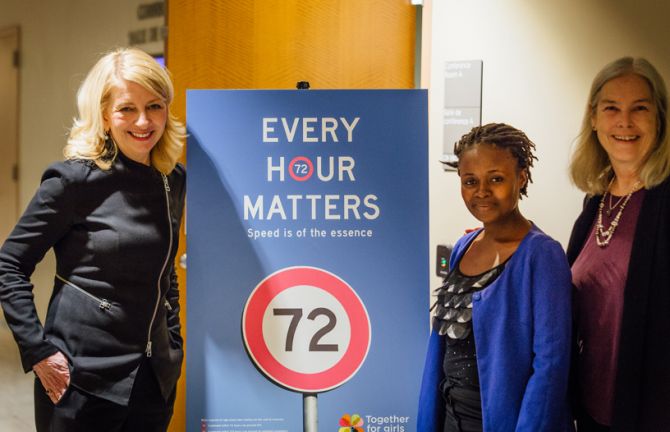


Update
UNAIDS, Together for Girls and partners call for increased attention to post-rape care
18 March 2016
18 March 2016 18 March 2016Sexual violence is a global problem. An estimated one in three women has experienced physical and/or sexual violence, and 120 million girls worldwide experienced forced sexual intercourse before their 18th birthday. Moreover, in high HIV prevalence settings women who experience intimate partner violence are 50% more likely to acquire HIV than other women.
Access to post-exposure prophylaxis (PEP) in the event of sexual violence, rape or unprotected sexual intercourse within 72 hours can reduce the risk of HIV infection by more than 80%. However, PEP alone is not enough and needs to be part of a package that includes action to address sexually transmitted infections, pregnancy, physical injury, mental illness and access to justice and legal protection.
Supporting people throughout their recovery, including in adhering to the full 28-day course of antiretroviral medicines that needs to be taken for PEP to be effective, is critical. However, people still face many barriers to freely accessing quality services, including stigma and discrimination in health-care settings.
On 16 March, Together for Girls, the World Health Organization and UNAIDS hosted a side event on the margins of the sixtieth session of the Commission on the Status of Women to promote the Every Hour Matters campaign, which will increase awareness of the importance of rapid access to comprehensive post-rape care.
Health-care workers, uniformed services, peacekeepers and others involved in post-rape care must be trained in gender-sensitive methods of relating to people who have experienced sexual violence and to deliver care without judgement and free of discrimination.
Reducing gender-based violence to lessen the risk of acquiring HIV and its impact is at the core of the UNAIDS 2016–2021 Strategy. The United Nations General Assembly High-Level Meeting on Ending AIDS, to be held in June, and the accompanying Political Declaration on AIDS are a critical opportunity to ensure that the sexual and reproductive health and rights of women and girls are promoted and their right to live in a safe environment free from violence is assured.
Together for Girls is a global public–private partnership dedicated to ending violence against children, with a focus on sexual violence. To address this human rights violation and public health problem, Together for Girls brings together the expertise and resources of many organizations working in development, public health and children’s and women’s rights to collaborate with national governments and civil society.
For more information on the campaign, see the Together for Girls website at http://www.togetherforgirls.org/every-hour-matters/.
Quotes
“We need to end the stigma and discrimination surrounding rape and we need to educate our communities about where to get help and access to post-rape services. It is important that we implement one-stop centres for post-rape care, which is critical to aiding survivors of rape.”
“It is important that we provide more information that post-rape care is there and to prevent HIV, at every corner, at every health facility in every community, to prevent HIV in that window period after rape.”
“The first reproductive right is the right not to be raped. We need to make sure girls get access to services as soon as possible to ensure that they get all the help they need.”
“Preventing rape and violence against women and children is certainly the top item on our agenda. However, it is equally important that in the unfortunate circumstance of rape, people have access to post-rape care services, as well as psychosocial and mental services.”
“We have to break the barriers that prevent women and girls accessing post-rape care and getting treatment within the time window to prevent HIV.”



